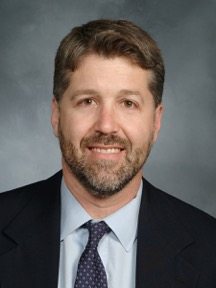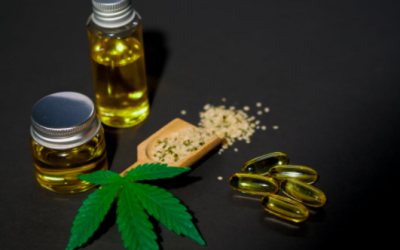Dr. Benjamin Samstein is Chief of Liver Transplantation and Hepatobiliary Surgery in the Department of Surgery at NewYork-Presbyterian/Weill Cornell Medical Center and Associate Professor of Surgery at Weill Cornell Medicine. He is the Surgical Director of the Living Donor Liver Transplant Program at NYP.
Dr. Samstein received his undergraduate degree from Cornell University in 1992 and earned his MD at the State University of New York at Stony Brook in 1997. He did his internship and residency in general surgery at NYP/Columbia, and completed a research fellowship at the Mayo Clinic in 2001. He completed a fellowship in ASTS Multi-organ transplant at NYP/Columbia in 2006. He is renowned in minimally-invasive liver surgery and state-of- the-art laparoscopic techniques for liver cancer. He is a member of many surgical societies including a founding member of the International Laparoscopic Liver Society (ILLS), the American Society of Transplant Surgery, and the American Hepato-Pancreato- Biliary Association (AHPBA). He is also the Chair of the Medical Advisory Board of the local organ procurement organization, LiveOnNY.
Dr. Samstein — who can be seen at 525 East 68th Street, New York, NY 10065 — answered questions for Downtown readers. For an appointment with Dr. Samstein, call (212) 746-2127. Patients with liver disease can also be seen at 41 Elizabeth Street, Suite 507 via calling (212) 312-5515.
What sort of unique benefits does NewYork-Presbyterian Hospital offer downtown Manhattan in the category of Liver Transplant and Hepatobiliary?
Dr. Benjamin Samstein: The liver is the largest organ in the body and performs critical functions including clearance of toxins, synthesis of proteins and clotting factors, and helping to digest food. NewYork-Presbyterian Hospital offers patients with liver disease and tumors of the liver one of the most experienced teams in the country. Additionally, our experts are focused on providing compassionate care in convenient locations.
What are some of the newest treatment breakthroughs that you offer at the hospital?
DBS: We perform more liver surgeries using laparoscopic or robotic surgery than any other hospital in New York. This enables patients to recover faster and get back to work, family, and the things they want to focus on in half the time as standard, open surgery.
What causes liver disease, other than alcohol?
DBS: Liver disease can be caused by infections of the liver, often called hepatitis. The most common hepatitis in the world is Hepatitis B, which affects more than 240 million people in the world. It is most common in Africa and East Asia, where as many as 5 to 10% of the adult population may harbor the infection. Additionally, Hepatitis C affects more than 1% of adults in the United States. There are excellent treatments for both of these conditions when they are identified early. In addition to hepatitis, fat called steatosis can cause injury to the liver. As Americans suffer from increase obesity, this steatosis is a growing cause of liver disease. Finally, autoimmune diseases, when the immune system inappropriately attacks the body, can affect the liver. A variety of autoimmune diseases can cause scarring of the liver and even cirrhosis.
Cancers of the colon often spread to the liver. Curative treatment for cancers that spread to the liver often involves surgery. This surgery must be done carefully by an experienced team like the one at NewYork-Presbyterian.
DBS: You should get a checkup if you have risk factors for Hepatitis C — born in the United States from 1945 to 1965 — or Hepatitis B — born in Asia, Africa, Middle East, Eastern Europe, Guatemala, Honduras, South American and some Caribbean islands. There are excellent treatments for Hepatitis B and C today that can help people avoid severe liver disease and transplantation. Today non-invasive tests without a biopsy can determine if there is scarring or damage the liver.
With today’s advancement where are we with liver transplant and what are the survival statistics?
DBS: Liver transplantation is extremely successful. Although it is serious surgery, careful evaluation before the surgery enables more than 90% of patients to do well. After surgery most people spend less than two weeks in the hospital. After transplantation patients can return to work, exercise, and all of their normal functions usually with more energy and health than before transplantation. In fact, the success of liver transplantation has led to its biggest problem — the lack of livers available for all who need them.
Please tell us about the procedure when donating a portion of our liver – both what it involves and the benefits for the patient in need and the person donating?
DBS: The shortage of organs has led specialists in liver transplantation to use a portion of a healthy person’s liver to replace the diseased liver. This procedure is called living donor liver transplantation. NewYork-Presbyterian has one of the largest living donor liver transplantation teams in the country — with the most experience and expertise. For the person donating, often the surgery is performed laparoscopically. For the person receiving a living donor liver transplant, early transplantation means less chance of dying before a liver becomes available. The risk of dying is reduced by 50%.
On a personal note, do you live downtown? What is your favorite getaway area in downtown?
DBS: I live in Brooklyn. I often walk over the Brooklyn Bridge. It is great way to get home and view a beautiful part of Manhattan.
Why did you choose this field and when did you decide that you wanted to become an MD?
DBS: The liver has remarkable regenerative capacity. The generosity of donors is an amazing thing. The strength of one person to have the courage to undergo surgery for another who is facing organ failure and death is one of the most inspiring parts of our humanity.
What is a day off for you like?
DBS: I enjoy spending time with my wife and children, walking in the parks, and cooking at home.















